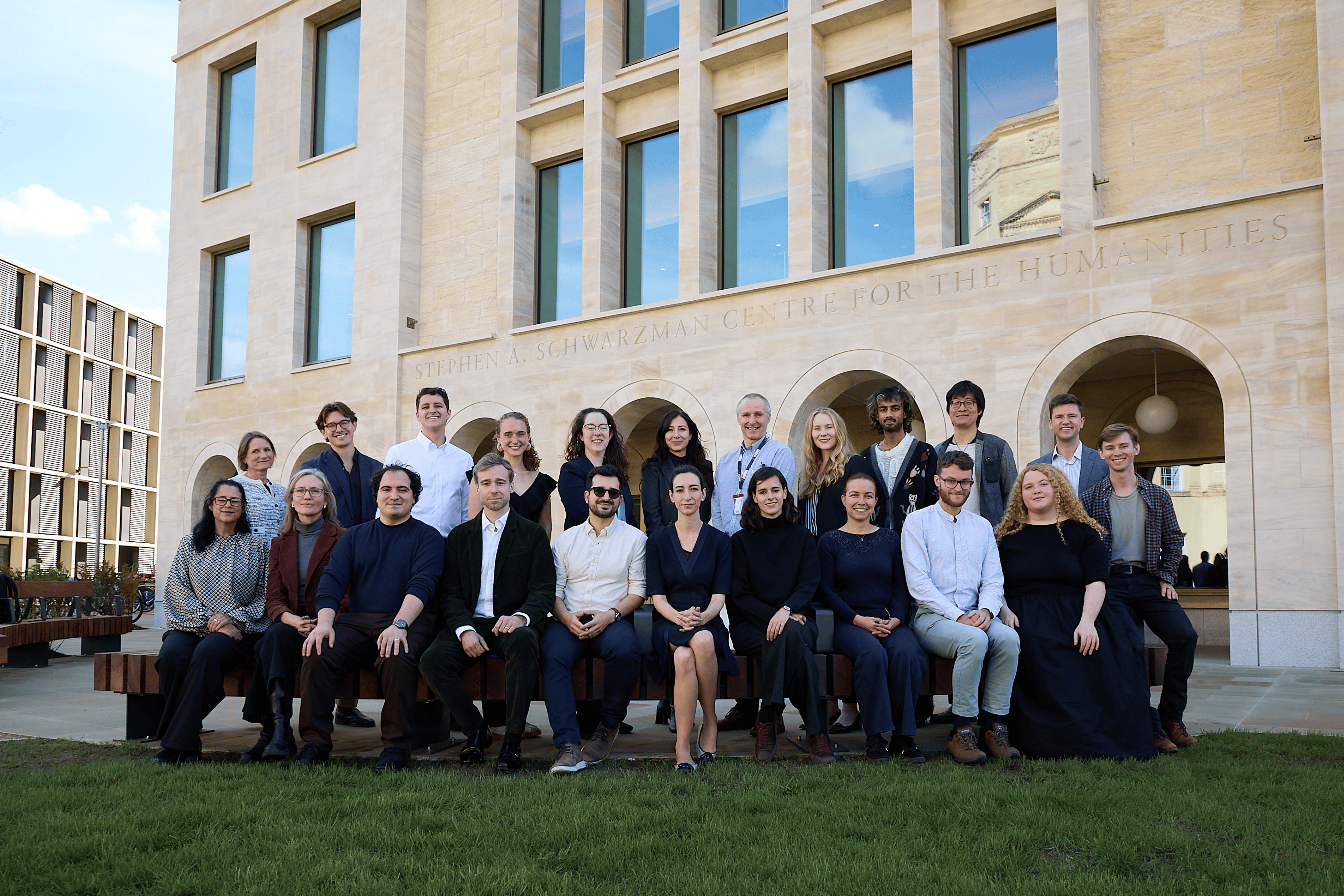
Why AI ethics matters now more than ever
Artificial intelligence (AI) now shapes daily life, from healthcare and education to work and democracy. As AI reflects and reshapes our human reality, AI ethics invites us to guide its development with care, ensuring it strengthens, not weakens, our shared humanity.
The University of Oxford’s Institute for Ethics in AI has now officially moved to its new home in the Stephen A. Schwarzman Centre for the Humanities, made possible by gifts totalling £185 million from Stephen A. Schwarzman, the largest in Oxford’s history. Purpose-built to welcome broad audiences into debate and collaboration, the Centre provides a truly public forum for the values, choices and guardrails that will shape AI’s future. The Institute invites partners from business, government and technology, alongside journalists, civil society and the public, to engage now in shaping AI.
Behind every AI model are human choices; behind every dataset are people’s lives. Too often, AI reproduces our biases alongside our brilliance. That is why ethics must sit at the core of design, development and governance, so that systems reflect what we value most: mutual respect, creativity and our shared humanity. From its new home, the Institute will convene philosophers with engineers, industry and policymakers from across the globe to answer a central question: what does it mean to be human in the era of AI, and how do we translate those values into code and practice?
Closer to home, the Institute is convening UK action: in March, the Oxford Project on the Responsible Use of Generative AI in Social Care held the UK’s first AI in Social Care Summit in Oxford, bringing 150 participants from adult social care, civil society, people with lived experience, academia, policy and technology; the Minister of State for Social Care addressed the event and a co-produced white paper led by Dr Caroline Green followed. In May, the Accelerator Fellowship Programme of the Institute ran the second AI and Creativity workshop at Westminster, hosted by Baroness Beeban Kidron, to explore collective solutions on copyright and provenance. The Institute is also deepening European ties, including a joint “Climate and Responsibility: Ethical Perspectives” conference with TUHH Hamburg’s Institute for Ethics in Technology. Furthermore, its founding architect, Professor Sir Nigel Shadbolt, appointed to the UK Government’s Council for Science and Technology, continues to anchor this work in national policy.
Dr Caroline Green, Director of Research at the Institute for Ethics in AI, and lead of the Accelerator Fellowship Programme of the Institute, said: ‘AI will inherit what we put into it. If we embed care, fairness and rigour, we will see those values at scale; if we do not, we will scale our blind spots. Oxford’s new home for the Institute gives us the public forum and scholarly depth to help ensure AI reflects the best of our humanity.’
Professor Sir Nigel Shadbolt said: ‘In the twenty-first century, we want to establish the foundations of AI ethics, to impact and inform the development, deployment, and use of AI for the betterment of all humanity. The move of the Institute for Ethics in AI to this extraordinary Humanities Centre allows us to continue asking: what are the ethics we need for AI? What are the ethical implications of this technology? How do we integrate humanities and the arts, alongside the science and engineering of AI? Based in one of the great departments of philosophy in the world, we will be researching ethical frameworks that ensure that AI empowers rather than diminishes us. This will be an increasingly important part of the intellectual journey on which Oxford, the UK, and humankind are engaged.’
Backed by this landmark investment, the move strengthens Oxford’s commitment to technologies worthy of public trust. Programmes will include flagship lectures, policy roundtables, practitioner workshops and collaborative research that turns philosophical insight into practical guidance for AI systems. The public will also be able to engage through new performance and exhibition spaces within the Centre, designed to bring research into civic life.
Notes for Editors
The Institute’s research team is available for interviews. For more information, please contact: aiethicscomms@philosophy.ox.ac.uk
Find out more: https://www.oxford-aiethics.ox.ac.uk/
About the University of Oxford
Oxford University has been placed number 1 in the Times Higher Education World University Rankings for the tenth-year running, and number 3 in the QS World Rankings 2024. At the heart of this success are the twin-pillars of our ground-breaking research and innovation and our distinctive educational offer.
Oxford is world-famous for research and teaching excellence and home to some of the most talented people from across the globe. Our work helps the lives of millions, solving real-world problems through a huge network of partnerships and collaborations. The breadth and interdisciplinary nature of our research alongside our personalised approach to teaching sparks imaginative and inventive insights and solutions.
Through its research commercialisation arm, Oxford University Innovation, Oxford is the highest university patent filer in the UK and is ranked first in the UK for university spinouts, having created more than 300 new companies since 1988. Over a third of these companies have been created in the past five years. The university is a catalyst for prosperity in Oxfordshire and the United Kingdom, contributing £15.7 billion to the UK economy in 2018/19, and supports more than 28,000 full time jobs.
